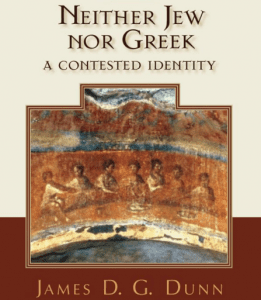Tim Keller’s newest book, King’s Cross: The Story of the World in the Life of Jesus, examines big questions through the Gospel of Mark. “The Stain” — the best chp I’ve read in this book thus far.
Questions: What does “unclean” mean? How do you teach the purity laws for today? Do they “symbolize”? What?
 Mark 7 tells us about disciples who were criticized for eating with their hands unwashed, and this gives Jesus an opportunity to excoriate the Pharisees and other teachers of the law for their external purity — and for their obsession with the “traditions of men.” [Keller avoids this traditions of men dimension of the text.]
Mark 7 tells us about disciples who were criticized for eating with their hands unwashed, and this gives Jesus an opportunity to excoriate the Pharisees and other teachers of the law for their external purity — and for their obsession with the “traditions of men.” [Keller avoids this traditions of men dimension of the text.]
Keller interprets the food/purity laws as a “kind of visual aid that enabled them to recognize that they were spiritually and morally unclean and couldn’t enter the presence of God unless there were some kind of spiritual purification” (71).
Keller then connects the purity laws to Franz Kafka’s brilliant novel: The Trial. Kafka’s novel is about the sense of being wrong. And Keller ties this to the human sense of being unclean.
Four strategies we use to absolve our sense of guilt and uncleanness, and each of them is an outside-in job:
1. Religion, by which he means performance.
2. Politics, and here he shows that progressivism believes if we change laws and structures the world will be healed.
3. Popular culture’s obsession with celebrities that don’t make us better.
4. Christian ministry, and the sense that if we preach good sermons we will be righteous/approved.
Then Keller proposes the solution: Jesus is the one who declares all things clean because he is the one who is clean. He heals the unclean and makes them clean. The law has been fulfilled in and by him.
Mark 7
1 The Pharisees and some of the teachers of the law who had come from Jerusalem gathered around Jesus 2 and saw some of his disciples eating food with hands that were defiled, that is, unwashed. 3 (The Pharisees and all the Jews do not eat unless they give their hands a ceremonial washing, holding to the tradition of the elders. 4 When they come from the marketplace they do not eat unless they wash. And they observe many other traditions, such as the washing of cups, pitchers and kettles.[a])
5 So the Pharisees and teachers of the law asked Jesus, “Why don’t your disciples live according to the tradition of the elders instead of eating their food with defiled hands?”
6 He replied, “Isaiah was right when he prophesied about you hypocrites; as it is written:
“‘These people honor me with their lips,
but their hearts are far from me.
7 They worship me in vain;
their teachings are merely human rules.’[b]
8 You have let go of the commands of God and are holding on to human traditions.”
9 And he continued, “You have a fine way of setting aside the commands of God in order to observe[c] your own traditions! 10 For Moses said, ‘Honor your father and mother,’[d] and, ‘Anyone who curses their father or mother is to be put to death.’[e] 11 But you say that if anyone declares that what might have been used to help their father or mother is Corban (that is, devoted to God)— 12 then you no longer let them do anything for their father or mother. 13 Thus you nullify the word of God by your tradition that you have handed down. And you do many things like that.”
14 Again Jesus called the crowd to him and said, “Listen to me, everyone, and understand this. 15 Nothing outside a person can defile them by going into them. Rather, it is what comes out of a person that defiles them.” [16] [f]
17 After he had left the crowd and entered the house, his disciples asked him about this parable. 18 “Are you so dull?” he asked. “Don’t you see that nothing that enters a person from the outside can defile them? 19 For it doesn’t go into their heart but into their stomach, and then out of the body.” (In saying this, Jesus declared all foods clean.)
20 He went on: “What comes out of a person is what defiles them. 21 For it is from within, out of a person’s heart, that evil thoughts come—sexual immorality, theft, murder, 22 adultery, greed, malice, deceit, lewdness, envy, slander, arrogance and folly. 23 All these evils come from inside and defile a person.”











